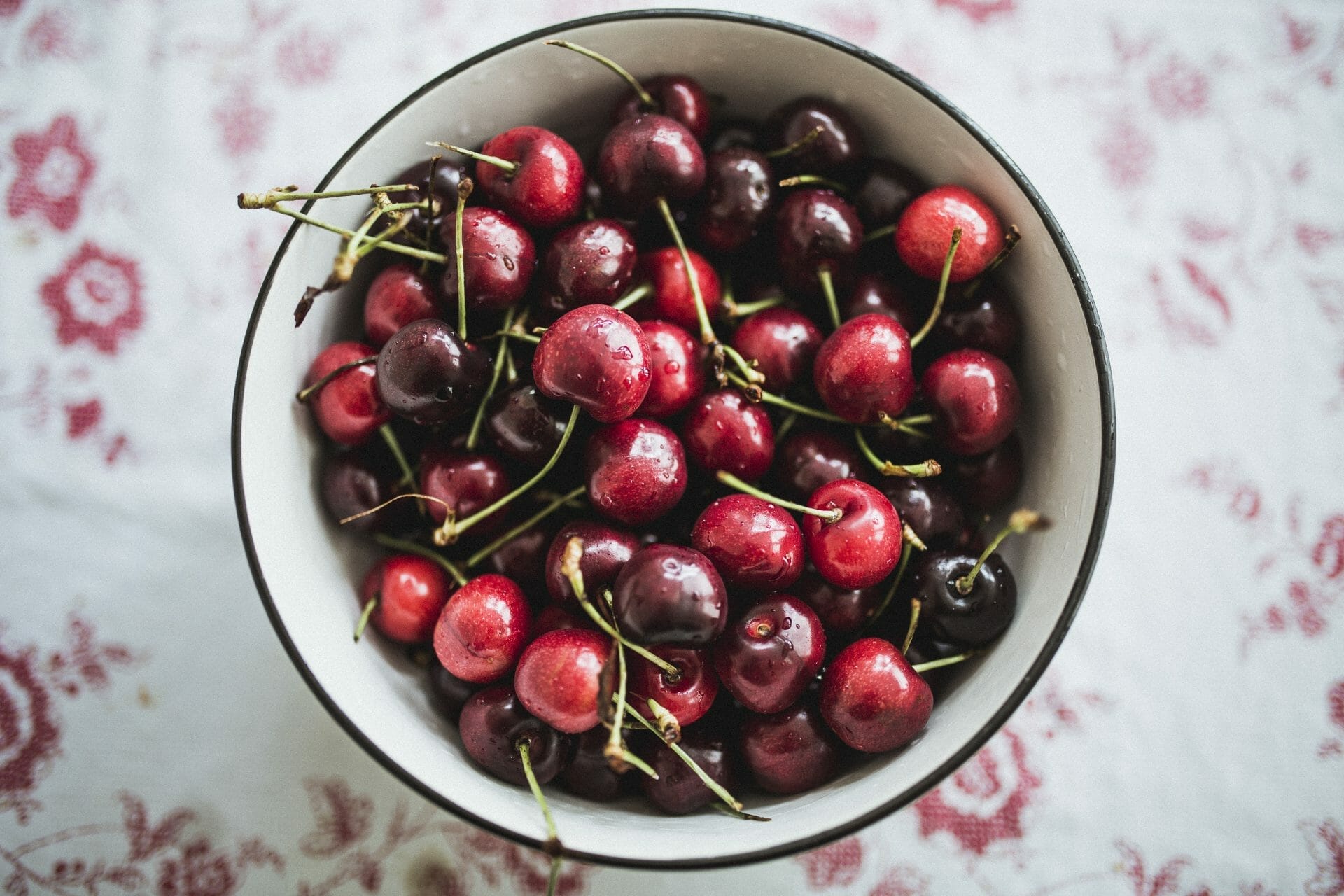One of the most beloved summer stone fruits, cherries come in a variety of subtypes that range in both colour and flavour profile. Whether they are tart and yellow or deep red and sweet, all varieties are rich in fibre, vitamin C, and are relatively low in calories. The chemical composition of cherries is equally as important as their vitamin and nutrient content; cherries are known to be a natural source of melatonin, a common over-the-counter supplement used to improve sleep quality amongst those with disruptions in slumber. Additionally, ongoing studies have linked cherry consumption to reduced inflammation throughout the body: from the joints to help manage gout and arthritis, and to the brain to reduce the progression of age-related cognitive decline.
In a 2013 article published in the European Journal of Nutrition, Dr. Jason Ellis’s team led a study investigating whether adding tart cherry juice supplements to the diet of healthy adults could increase their melatonin levels and improve sleep quality. The team randomized 20 healthy adults to receive either a cherry juice concentrate or a placebo for 7 days. Over the week-long trial, participants completed questionaries to assess sleep quality and provided urine samples to assess melatonin levels.
Interestingly, they found that total melatonin levels were elevated amongst those in the cherry juice group when compared to their own scores at baseline and also when compared to the placebo control group. Sleep diary information revealed that with the administration of cherry juice, participants tended to have fewer naps during the day and reported increased scores on overall sleep quality.
Despite being a small trial over a relatively short period, this data suggests that consumption of tart cherry juice can boost melatonin levels and contribute to improved sleep duration and quality in healthy adults.
These effects may even be more important as we age! Another study out of Spain found that the consumption of a cherry-based juice product improved both sleep efficiency and duration of time required to fall asleep, with the strongest results seen in participants in the 65 to 85-year-old age category. While these results are promising, it is important to note that these studies were based on the administration of highly concentrated cherry products, and it is unknown yet how many fresh cherries would be required to produce similar findings.
While cherries are rich in polyphenols that are known to have anti-inflammatory properties, research investigating the effects on brain function is relatively new. An American study published by Dr. Barbara Shukitt-Hale at the Tufts University Human Nutrition Research Center on Aging looked to see whether tart cherry supplementation could slow the decline in brain function amongst aging rats. Thirty male rats were assigned to receive either their regular diet or receive supplementation with tart cherry concentrate. After six weeks on their new diet, the research team assessed performance on several behavioral tests to measure their physical strength, stamina, balance, coordination, and working memory. Strong positive effects were observed on the memory and learning tasks of those animals who were fed the cherry product. Following behavioral testing, the hippocampus, or the brain’s memory region, were analyzed.
Notably, the cherry cohort had substantially lower levels of inflammatory markers known to cause toxic inflammation to brain cells in the region, contributing to improved resilience against age-related stresses.
In combination, these interesting and novel studies demonstrate that cherry consumption may reduce age-associated inflammation and allow for enhanced retention of memory and improved sleep. These findings were particularly strong in aging individuals; therefore, the integration of cherries in your diet may promote healthy brain aging.



